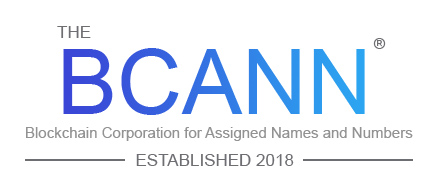
Compound is a DeFi lending protocol that allows users to earn interest on their cryptocurrencies by depositing them into one of several pools supported by the platform.
To learn more about this project, check out our deep dive of Compound.
When a user deposits tokens to a Compound pool, they receive cTokens in return. These cTokens represent the individual’s stake in the pool and can be used to redeem the underlying cryptocurrency initially deposited into the pool at any time. For example, by depositing ETH into a pool, you will receive cETH in return. Over time, the exchange rate of these cTokens to the underlying asset increases, which means you can redeem them for more of the underlying asset than you initially put in — this is how the interest is distributed.
On the flip side, borrowers can take a secured loan from any Compound pool by depositing collateral. The maximum loan-to-value (LTV) ratio varies based on the collateral asset, but currently ranges from 50 to 75%. The interest rate paid varies by borrowed asset and borrowers can face automatic liquidation if their collateral falls below a specific maintenance threshold.
Since the launch of the Compound mainnet in September 2018, the platform has skyrocketed in popularity, and recently passed more than $800 million in total locked value.
Who Are the Founders of Compound?
Compound was founded in 2017 by Robert Leshner and Geoffrey Hayes, both of whom previously worked in high-profile roles at Postmates — an online food delivery service. The two continue to hold executive positions at Compound Labs, Inc — the software development firm behind the Compound protocol, with Leshner currently serving as CEO, while Hayes is the CTO.
Though both founders have experience founding successful companies, Robert Leshner, in particular, has been particularly active in helping to grow the blockchain space, and has publicly invested in popular crypto platforms including Argent Wallet, Opyn, and Blockfolio.
The Compound team now comprises over a dozen individuals — almost half of which work as engineers.
What Makes Compound Unique?
According to Compound, the majority of cryptocurrencies sit idle on exchange platforms, doing nothing for their holders. Compound looks to change this with its open lending platform, which allows anybody who deposits supported Ethereum tokens to easily earn interest on their balance or take out a secured loan — all in a completely trustless way.
Compound’s community governance sets it apart from other similar protocols. Holders of the platform’s native governance token — COMP — can propose changes to the protocol, debate and vote whether to implement changes suggested by others — without any involvement from the Compound team. This can include choosing which cryptocurrencies to add support for, adjusting collateralization factors, and making changes to how COMP tokens are distributed.
These COMP tokens can be bought from third-party exchanges or can be earned by interacting with the Compound protocol, such as by depositing assets or taking out a loan.
Related Pages:
Learn about Aave — one of Compound's biggest competitors.
Read about yearn.finance — one of the first yield farming protocols.
Want to brush up on your crypto knowledge? Check out CMC Alexandria.
Read our blog to stay up to date with the latest industry news and events.
How Many Compound (COMP) Coins Are There in Circulation?
Like many digital assets, only a fixed number of COMP tokens will ever come into existence. The total supply is capped at 10 million COMP and as of writing, less than a third are in circulation (~3.3 million).
Out of these 10 million tokens, just over 4.2 million tokens will be distributed to Compound users over a 4-year period. The second biggest allotment (almost 2.4 million COMP) goes to the Compound Labs, Inc shareholders, whereas 2.2 million tokens will be distributed to the Compound founders and current team with a 4 year vesting schedule.
Finally, 775,000 COMP are reserved for community governance incentives and the remaining 332,000 tokens will be allocated to future team members.
The exact rate of COMP emission is subject to change over time, as voters are able to increase or reduce the emission rate by passing a proposal through community governance.
How Is the Compound Network Secured?
Everything on Compound is handled automatically by smart contracts, which act to mint cTokens after Ethereum and ERC20 assets are deposited, and allow Compound users to redeem their stake using their cTokens.
The protocol enforces a collateralization factor for all assets supported by the platform, ensuring each pool is overcollateralized at all times. If the collateral falls below the minimum maintenance level, it will be sold to liquidators at a 5% discount, paying down some of the loan and returning the remainder to an acceptable collateralization factor.
This arrangement helps to ensure borrowers maintain their collateral levels, provides a safety net for lenders, and creates an earning opportunity for liquidators.
Where Can You Buy Compound (COMP)?
COMP is currently available to trade on hundreds of cryptocurrency exchange platforms, including Coinbase Pro, Binance and Huobi Global. It can be traded against most other popular cryptocurrencies, as well as a range of fiat currencies, including the U.S. dollar (USD), Indian rupee (INR) and Australian dollar (AUD).
Not sure how to convert fiat to cryptocurrencies like COMP? Find out more here.
Our most recent articles about Compound:
Week in DeFi: Lending Protocols Ship, a Bustling Cosmos and Proof-of-Innocence
A Complete Guide to Making Passive Income With Lending
Breaking: Robinhood Lists SHIBA INU
Who Is Andre Cronje?
How Much Are People Paying to Use Crypto
Read Less
How do you feel about Compound today?
Vote to see what our Community thinks!


